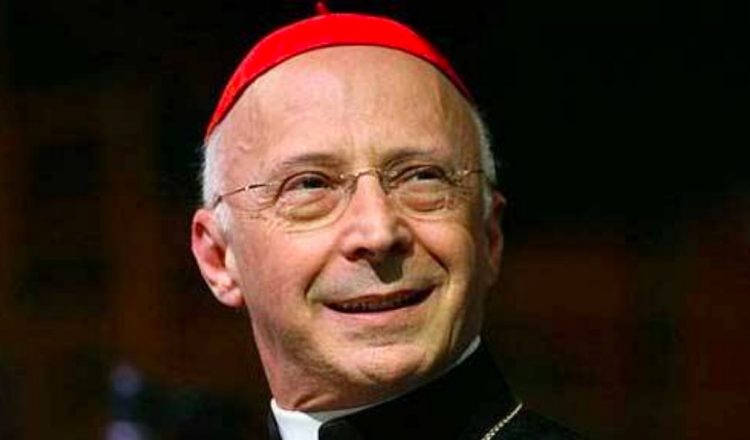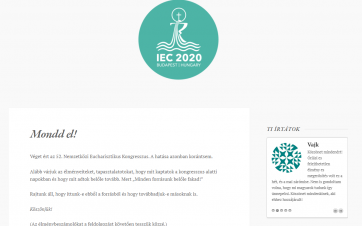
The optimistic intellectual heavyweight

Many are the unanswered questions that people, communities and even the Church itself should face in terms of the world pandemic and its aftermath. One of them is what the liturgical life will be like after the quarantine. Recently, in a message to his fellow priests in Rome, the Pope’s personal secretary warned that the pastors ought to appear physically in person amongst their herds, otherwise worshippers are going to abandon the Church, since they might have the feeling of being abandoned by their Church.
Of course, even quite the contrary can also happen, a moving into the opposite direction will start, and the forced social distancing will deepen the longings for the sacraments and the community. Angelo Bagnasco, the guest speaker of the 52 nd International Eucharistic Congress, is for the latter position.
“I’m certain that after the emergency is over, Christians will return to our churches for the Mass with a greater awareness.”
- said Cardinal Angelo Bagnasco in his interview in March with the Italian newspaper Il Secolo XIX. He also added that as to his opinion, from now on we would live differently, either being a faithful or a citizen.
Mostly guessing have been worded so far on the various communities’ response to the changing world. Likely we would experience both directions over the time.
Angelo Bagnasco is one of the guest speakers of the Catholic World Meeting to be held next year in Budapest. The Cardinal was born in 1943, and was ordained a priest in 1966. He was appointed Bishop in 1998, and Archbishop in 2000 by Pope John Paul. Named to Genoa Archbishop in 2006 by Pope Benedict XIV. Elevated to the rank of Cardinal in 2007 while nominated as President of the Italian Bishops’ Conference the very same year. During the recent 4 years he also serves as President of the Council of the Bishops’ Conferences of Europe. John Allen, the CNN’s Vatican specialist described him as of being “fairly savvy about both secular politics and the media.” The church historian, Matthew Bunson called Bagnasco as an intellectual heavyweight.
Bagnasco’s words are broadly followed, and not only within the clergy. Many listened him, when amidst the days of the world pandemic, at the end of March he celebrated a live streamed Mass in the empty chapel of the Genoa San Martino Hospital. The situation was illustrated with a touching story from his personal life: “When I was a kid, until it was time for dinner, I was playing in an alleyway in the rubble of the post war.” – recalled Bagnasco. “When I had yelled up from the street, my mom opened the door, was calling my name, afraid for me since the stairway was dark. So I could follow the sound of her voice until making my way up to the fourth floor, where she’d came out, took my hand and warmly hugged me.” […] “This is what it’s like for us on the present dark stairway of our life. God’s reassuring voice and his outstretched arms are directing us.”
Bagnasco agreed that public Masses should be suspended, yet the parish churches should remain open for private visits. “The temporary suspension of all kind of liturgical ceremonies is definitely a sacrifice for the believers, still as citizens, our duty is to care and serve the common good to protect life and health.” The Cardinal emphasized that even non-believers find it “encouraging” and “a sign of hope” that the doors of the Catholic Churches are left open.
Bagnasco was speaking about his quarantine experiences as follows:
“I was told about the growing of personal and family prayers, as well as of the tendency to think over what was happening and to draw lessons that of for the future.”
The Cardinal urged of never forgetting the lessons we had learned from the world pandemic. “I do hope that we are not going to restart living in exactly the same way we did before. It’s really high time to make sacrifices for each other, staying close to each other even if we have to remain physically apart.”
Source: CRUX
Photo: Magyar Kurír










